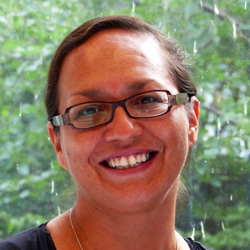Learn more to make the best choices for yourself and your family

Dr. Nel Wieman
The legalization of non-medical cannabis in Canada is happening October 17, 2018 and we at the FNHA want to provide you with as much information as possible so you can make the best and safest choices for yourself and your family members.
During a recent webinar about the legalization of non-medical cannabis, we heard that people want to know more about two important areas of concern related to cannabis use: 1) the risks to moms and babies through prenatal exposure and, 2) the risks to mental health, especially youth.
Let's talk about moms and babies first.
The most important thing to know is that while cannabis may be viewed by some as safe to use during pregnancy (because it's a "natural product" or a "natural medicine," and is thought to help with nausea and morning sickness), doctors and other health professionals in Canada are encouraging women to give up using cannabis during pregnancy, if possible. If you can't or don't want to stop using entirely, then we recommend using as little as possible, and less often, or using a vaporizer instead of smoking.
Here are some important facts about cannabis and pregnancy:
• It is THC that we're worried about. THC is major chemical/ingredient in cannabis that can negatively affect memory and other functions. During pregnancy THC crosses the placenta and into the baby's bloodstream – when a baby's blood is tested right after birth, THC has been found.
• The first trimester (three months) of pregnancy is when all the parts that make up your beautiful baby really are formed – this is why we recommend that women avoid cannabis especially during this time, even though it's when morning sickness can be at its worst. We suggest speaking to your health care provider if you have or are worried about morning sickness and treatments for it.
• Research has connected cannabis use to going into labour early, before your due date and low birth weight (baby is smaller than average), which could potentially mean your newborn would be more vulnerable to things like infections, difficulty feeding, and more.
• There are also some potential learning and behaviour consequences for your child down the road related to cannabis use – ones you might not notice right after birth, but once your child enters day care or school. These include learning challenges, acting without thinking first and hyperactivity.
• THC is also found in breast milk, so Canadian experts are recommending that women avoid using cannabis or cut down as much as they can while breast feeding.
We hope you find this information useful. Legalization of non-medical cannabis will spur more research, including looking into the impacts on moms and babies. We will continue to share new information as it becomes available. All of us at the FNHA are here to support you in making informed choices for yourself, your children and your families. Let's keep the conversation going and we'll meet you where you're at.
Yours in Wellness, Dr. Nel Wieman
Coming soon: Cannabis use and your mental health
Have a question about Cannabis and your health? Email us at info@fnha.ca

